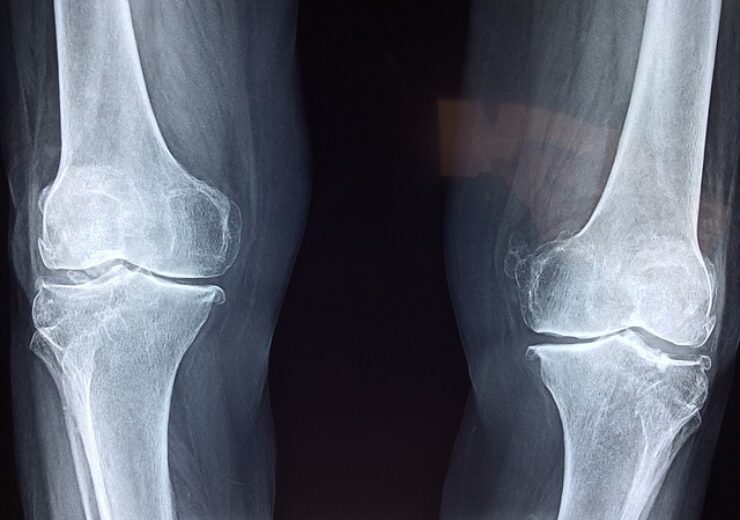The biomimetic implant will help replace damaged knee cartilage in patients with single or multiple chondral or osteochondral defects in the knee

SBM-01 biomimetic implant will allow to treat chondral or osteochondral defects in the knee cartilage. (Credit: Dr. Manuel González Reyes from Pixabay)
Orthopaedic solutions developer Sparta Biomedical has secured breakthrough device designation from the US Food and Drug Administration (FDA) for its SBM-01 biomimetic implant.
The biomimetic implant has been developed for the replacement of damaged knee cartilage in patients with single or multiple chondral or osteochondral defects in the knee.
Osteoarthritis (OA) is a common joint disorder, which is represented by progressive and irreversible articular cartilage degeneration that may result in significant joint pain, joint motion limitations, and the formation of bony osteophytes.
OA in the knee is commonly treated with non-pharmacological management, viscosupplementation injections, and anti-inflammatory medications.
SBM-01 biomimetic implant is said to be a minimally invasive treatment for chondral or osteochondral defects of the knee cartilage.
The implant, which mimics the properties of native cartilage, offers a smooth articulating surface to support surrounding cartilage and stabilise subchondral bone. It will help restrict further exacerbation of the disease.
Sparta Biomedical co-founder and CEO Dushyanth Surakanti said: “The Breakthrough Device Designation reflects our team’s drive to develop a truly unique solution to address a large clinical need.
“This new treatment option is designed for the hundreds of thousands of patients who experience persistent knee pain and compromised mobility after failing conservative care, but who are too young for a total knee replacement.”
The breakthrough device programme of the FDA is designed to help boost the patient access to advanced technologies, which are expected to serve as efficient treatments for debilitating conditions.
